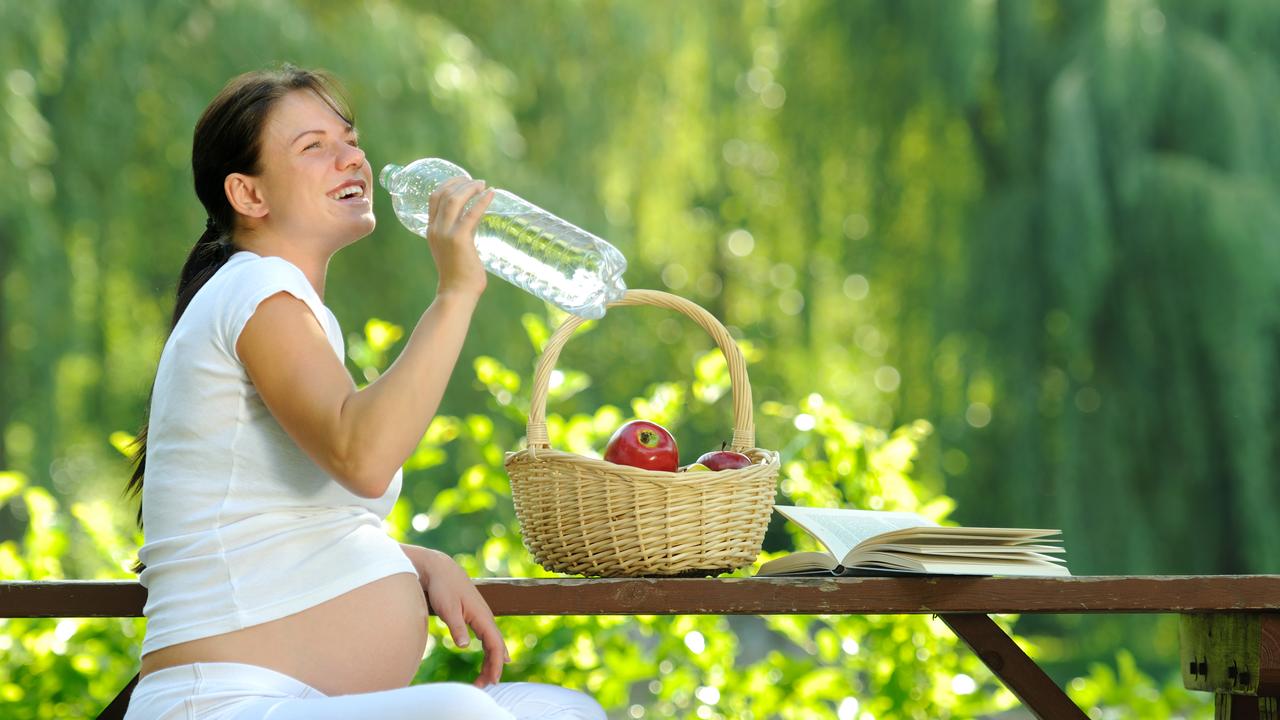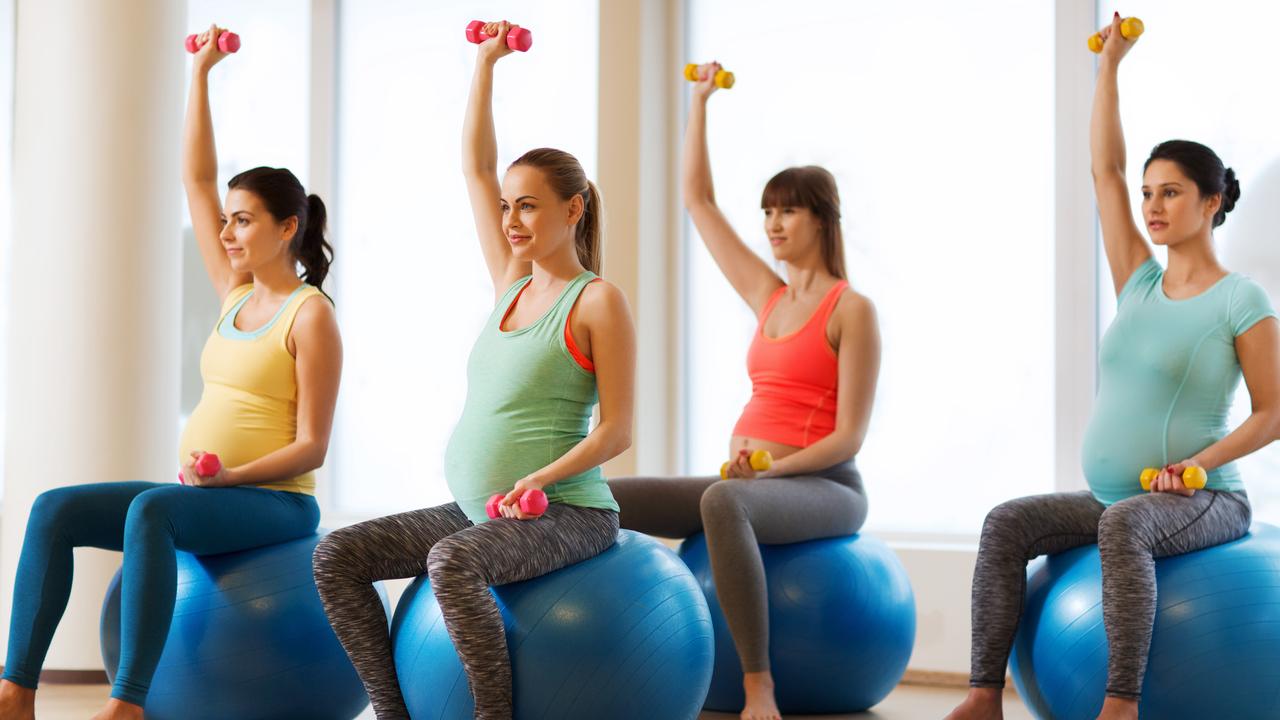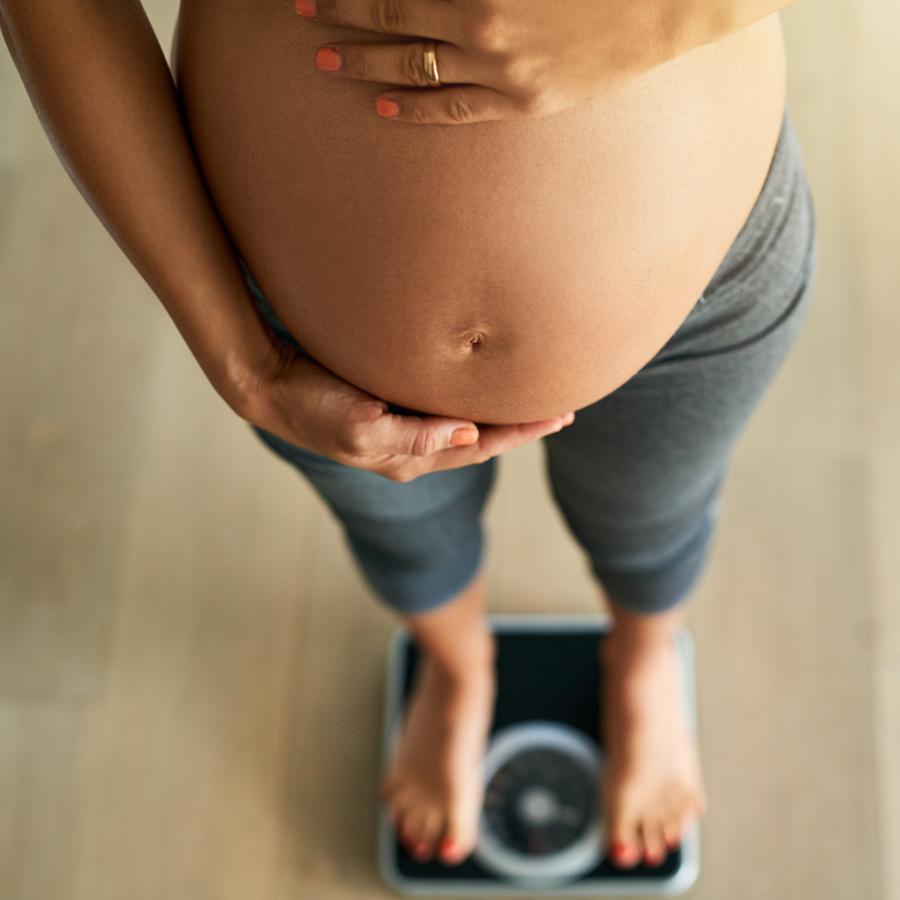Pregnancy tips: Foods you can and cannot eat while pregnant
There’s a lot of foods women are told not to eat when expecting — but there’s a popular raw meal mums-to-be skip they could be enjoying.
There is a lot of information out there about what women can and cannot eat during their pregnancy — including unwashed produce, unpasteurised dairy and even alcohol and caffeine consumption.
To help clarify things, we asked three experts, a pre and postnatal specialist, nutritionist and naturopath, to simplify the dos and don’ts of pregnancy.
SURPRISING FOODS YOU CAN EAT WHILE PREGNANT:
What many people probably didn’t know is sushi made with raw fish can actually be OK for pregnant women to eat “as long as the fish has been frozen first and handled and prepared properly”, according to Lisa Guy, a naturopath and founder of Art of Healing.
She explained sometimes raw fish like salmon can contain parasitic worms that can cause an infection, but freezing will kill any worms in the fish.

“Raw fish though is also more likely to contain bacteria such as listeria which can cause food poisoning,” Ms Guy advised.
“You also need to be careful though to what type of fish you are eating when you’re pregnant. You should be avoiding larger fish like tuna that commonly contain higher levels of heavy metals.”
She said that although some people say raw fish is OK for pregnant women to eat, she recommends erring on the side of caution and sticking to cooked fish while you are pregnant.
Clinical Nutritionist and health coach Gabby Ratner said it was also fine for expectant mums to include sage in their cooking but said it should be avoided in concentrated forms such as sage tea during pregnancy.
“It’s been linked to miscarriage and high blood pressure,” Ms Ratner said.
CAN I HAVE ALCOHOL AND CAFFEINE WHILE PREGNANT?
Alcohol:
In short. No.
When it comes to alcohol during pregnancy, there is no safe limit.
There are many women who will consume alcohol in the first trimester simply through being unaware that they are yet pregnant and in the first two to three weeks the effects are minimal.
But according to Brooke Turner, a pre and postnatal specialist and exercise scientist, approximately three weeks after fertilisation is when alcohol can start having negative effects on the developing embryo.
“The National Health and Medical Research Council, Australia’s peak body on developing national health advice, recommends that for women who are pregnant, planning pregnancy or breastfeeding, not drinking alcohol is the safest option,” Ms Barnes told news.com.au
“This is because no amount of alcohol has been proven as safe. The evidence is clear: alcohol causes birth defects.

Ms Turner said drinking alcohol regularly during pregnancy could not only cause miscarriage and premature birth, but can cause permanent damage to your developing baby.
“All alcohol crosses the placenta increasing the risk of miscarriage, stillbirth, premature birth, low birth weight, birth defects and brain conditions,” she said.
Ms Turner said some women choose to have the odd drink, and it is just that — “a personal choice”.
Energy drinks:
It is also not recommended to consume energy drinks as they contain high levels of caffeine. According to Ms Guy, consuming too much caffeine in pregnancy could negatively impact the mum-to-be and growing baby’s health, as it can interfere with iron and calcium absorption.
Ms Turner said women should limit their caffeine intake to 200 mg per day, which is about to three cups of coffee.
“High caffeine intake during pregnancy can limit foetal growth and cause low birth weight,” she explained.
COMMON PREGNANCY MYTH BUSTED:
Ever heard of the saying, “I’m eating for two people”?
You actually don’t need to when you’re pregnant.
“In fact the first trimester additional energy needs are minimal, increasing to about an additional 300 calories per day by the second trimester and approximately 450 calories by the third,” Ms Turner said.
“Pregnancy is not the time to be dieting unless advised by your doctor.”

SHOULD PREGNANT WOMEN EXERCISE?
According to Ms Guy, pregnant women should continue to do regular to moderate exercise throughout their pregnancy within their limits.
She advised not to start a new or novel form of exercise and to avoid any strenuous movements.
But said swimming, walking and prenatal yoga or pilates are all excellent forms of gentle exercise for expectant mums.
“If you have any questions about what exercises are OK during pregnancy, ask a qualified exercise physiologist who works with pregnant women,” Ms Guy said.
“If you have any medical conditions or pregnancy complications check with your doctor as to what level of activity you can safely handle.”
If you are fit and active prior to falling pregnant, women can train right throughout pregnancy.
“Of course modifications to exercise need to be made as a pregnancy progresses and to accommodate considerations such as the changing centre of gravity, hormones (namely relaxing) and increased load on the pelvic floor,” Ms Turner said.

She said there were specific considerations for each trimester that women need to be aware of and how exercise can impact that – for example a woman’s core body temperature and over heating was very important in the first trimester due to the baby’s organs developing and the highest risk of miscarriage.
“Often a time when women will feel great, yet should be reducing the intensity of their exercise,” she explained.
“As pregnancy progresses load on the pelvic floor and changes in hormone levels, pelvic girdle pain and more needs to be considered and exercise modified accordingly. But it is possible for women to continue training in a way that they both enjoy and is effective under the guidance of a suitably qualified fitness professional.”
SHOULD PREGNANT WOMEN BE A CERTAIN WEIGHT?
As long as you are eating lots of healthy foods and getting regular exercise (within your limits), Ms Guy says pregnant women shouldn’t get too hung up on how much weight they’ve gained.
“It is a natural part of pregnancy to put on weight, and every women is different, some putting on more than others,” she said.
However, she did recommend trying to stay within a healthy weight gain range, which can vary between 8kg to 20kg, although the average weight gain for expectant mums seems to be around 12to 14kg.
The naturopath explained most of the weight gained during pregnancy came from the weight of your baby, placenta, amniotic fluid, breasts, and the increase in blood volume and fluid retention.
“Women who are underweight before they fall pregnant can afford to put on extra weight, while women who were overweight before pregnancy should try to not put on more weight than the average.

“Gaining too much weight during pregnancy can lead to problems such as high blood pressure and problems with blood sugar levels, which can result in gestational diabetes.
“Pregnant women who are overweight also have an increased risk of having larger babies who put on weight more easily, and who have an increased risk of becoming overweight later in life.”
Getting back into shape after your baby is born is often the last thing on a mum’s mind, especially when they’re sleep-deprived, feeding around the clock, and learning the ropes of being a new mum.
“So maintaining a healthy weight during pregnancy will make it so much easier to get back to your pre-baby shape,” Ms Guy said.
“If you are concerned that you are putting on too much weight talk to your nutritionist or naturopath, or get your midwife or doctor to put you in touch with a dietitian at the hospital.”




